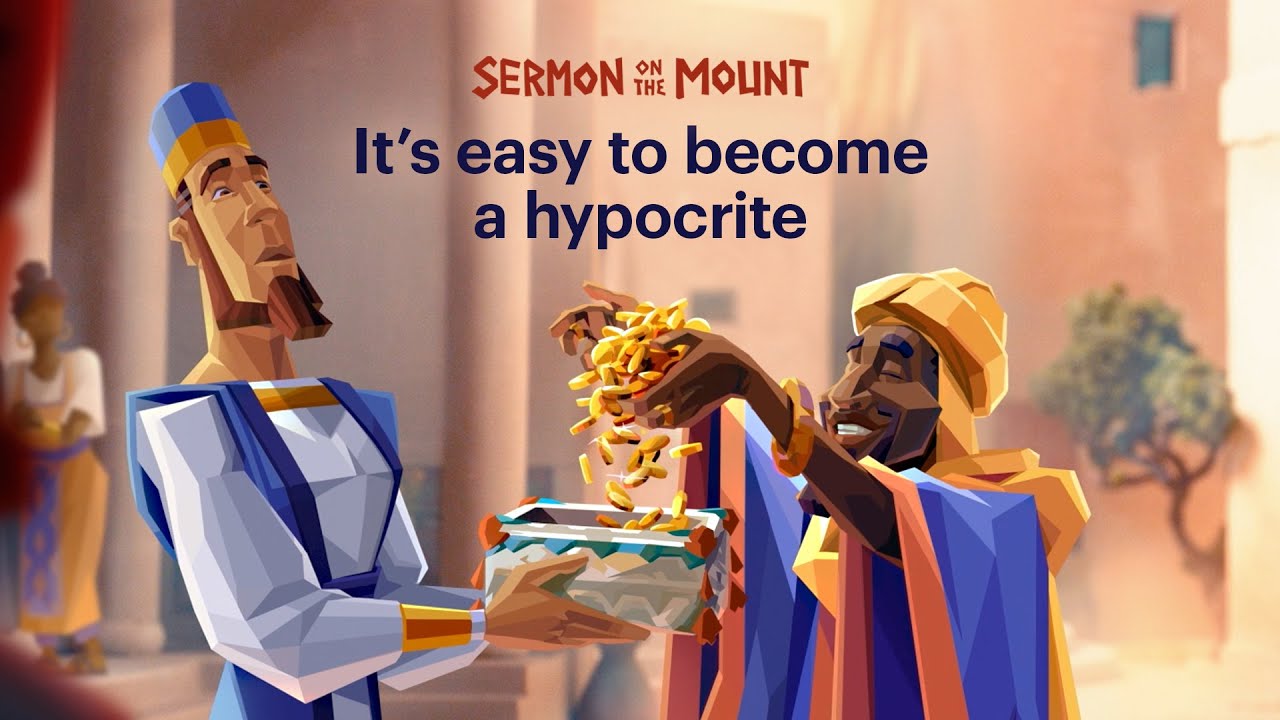Jesus Said “Do Not Judge.” What Do We Do Instead?
Summary
TLDRIn the Sermon on the Mount, Jesus calls his followers to live with radical generosity, love for enemies, and a thirst for right relationships, while avoiding judgmental attitudes. He emphasizes the importance of self-reflection, urging individuals to deal with their own flaws before attempting to help others. Discernment is key in offering wisdom, knowing when people are ready to receive it. Jesus encourages a habit of seeking God's wisdom, as God is a generous provider. Ultimately, the Golden Rule sums up Jesus' teaching: treat others with the kindness and empathy you desire, guided by divine wisdom.
Takeaways
- 😀 Jesus calls his followers to live with radical generosity, as peacemakers, and to love their enemies.
- 😀 He teaches that true righteousness fulfills God's will, as expressed in Israel's Scriptures.
- 😀 Jesus warns of potential traps on the path of righteousness, including pride and judgmental attitudes.
- 😀 The earnest pursuit of doing good can lead to a lack of self-awareness and judgment of others.
- 😀 Jesus teaches to avoid judging others and instead practice empathy, considering how we would want to be judged.
- 😀 We should reflect on our own flaws before pointing out the flaws in others, as Jesus said in his parable of the speck and the beam.
- 😀 Jesus encourages self-reflection: take the beam out of your own eye before helping others with their issues.
- 😀 Offering wisdom to others isn't always appropriate—some people may not be in a place to receive it.
- 😀 Discernment is required when offering wisdom—knowing when and when not to step in and help is crucial.
- 😀 Jesus teaches that God is like a generous parent who gives wisdom to those who ask for it.
- 😀 The Golden Rule: Treat others as you would want to be treated, with kindness, patience, and love, and offer God's wisdom with empathy.
Q & A
What is the 'greater righteousness' that Jesus talks about in the Sermon on the Mount?
-The 'greater righteousness' refers to a way of life that fulfills God's will, as expressed in the Torah and Prophets. It involves radical generosity, being a peacemaker, loving one's enemies, and desiring right relationships.
What warning does Jesus give regarding the study of God's wisdom in Scripture?
-Jesus warns that an earnest quest for doing good through studying Scripture can lead to a lack of self-awareness and a judgmental attitude, especially if one starts thinking too highly of themselves.
How does Jesus address the issue of judgment in his teachings?
-Jesus advises against judging others, instead encouraging self-reflection. He teaches that we should first examine our own flaws before judging the flaws in others, as illustrated in his parable about the speck and the beam in the eyes.
What does Jesus' parable about the speck and the beam in the eye teach us?
-The parable teaches that before trying to help someone with their issues, we should address our own larger issues first. Only after self-reflection can we approach others with clarity and compassion.
What does Jesus mean by 'Do not give what is holy to dogs, and don't throw your pearls in front of pigs'?
-This teaching suggests that wisdom and guidance should not be offered to those who are not in a place to receive it. Offering wisdom to people who are unwilling to accept it can lead to frustration and conflict.
How should we discern when to offer wisdom to others?
-Jesus highlights the need for wisdom in knowing when to offer help or correction. We should discern when someone is open to receiving wisdom, as not everyone is in a position to be receptive to it.
What does Jesus say about the generosity of God when it comes to wisdom?
-Jesus compares God to a generous parent who gives good gifts to his children. He encourages people to ask, seek, and knock for wisdom, assuring them that God will provide it freely.
What is the Golden Rule, and how does Jesus connect it to the Sermon on the Mount?
-The Golden Rule, 'Do to others as you would have them do to you,' sums up Jesus' teachings on how to live according to God's wisdom. It emphasizes empathy and the importance of treating others with kindness and respect.
Why does Jesus emphasize empathy in his teachings on wisdom?
-Jesus emphasizes empathy because it helps guide our actions towards others in a way that is loving and compassionate. When we consider how we want to be treated, it leads us to make wiser and more loving choices in our interactions.
How does Jesus conclude the Sermon on the Mount?
-Jesus concludes the Sermon on the Mount by summarizing his teachings, stating that they fulfill the Torah and the Prophets. He also emphasizes the choice everyone faces in how to respond to his words, which will be explored further in the next section.
Outlines

Cette section est réservée aux utilisateurs payants. Améliorez votre compte pour accéder à cette section.
Améliorer maintenantMindmap

Cette section est réservée aux utilisateurs payants. Améliorez votre compte pour accéder à cette section.
Améliorer maintenantKeywords

Cette section est réservée aux utilisateurs payants. Améliorez votre compte pour accéder à cette section.
Améliorer maintenantHighlights

Cette section est réservée aux utilisateurs payants. Améliorez votre compte pour accéder à cette section.
Améliorer maintenantTranscripts

Cette section est réservée aux utilisateurs payants. Améliorez votre compte pour accéder à cette section.
Améliorer maintenantVoir Plus de Vidéos Connexes

“Conflict in Relationships Is Unavoidable” • Jesus Offers Wisdom for Seeking Peace

The Most HATED of All Jesus' Teachings

#SekolahSabat Remaja | Panggilan Yesus - Cornerstone Pel 11 Kuartal II 2025

YOHANES 17 : 20 - 26 || Bahan Sermon dan Khotbah Sekolah Minggu, 25 Mei 2025

Kemurahan Hati

Why Jesus Warns Us About Giving, Praying, and Fasting Publicly
5.0 / 5 (0 votes)
